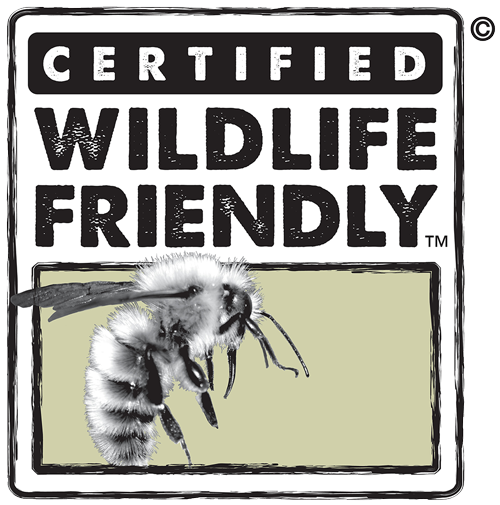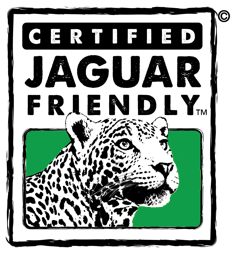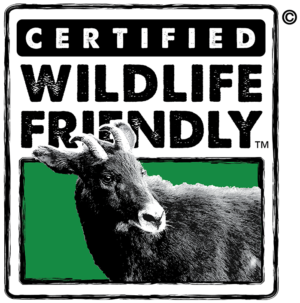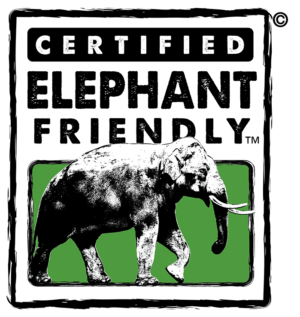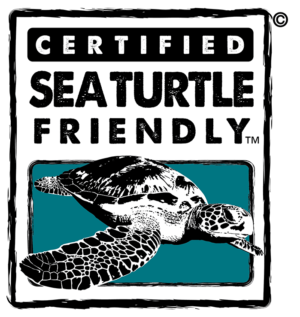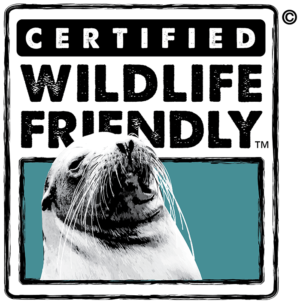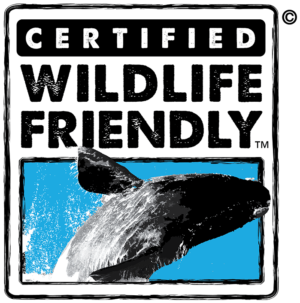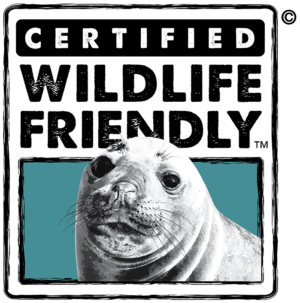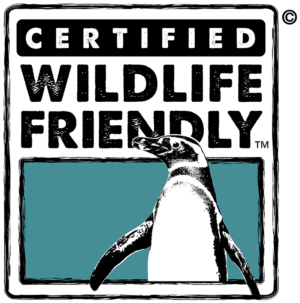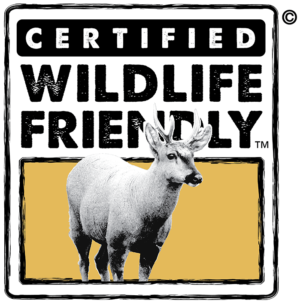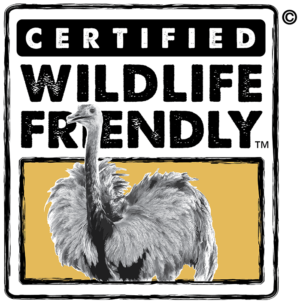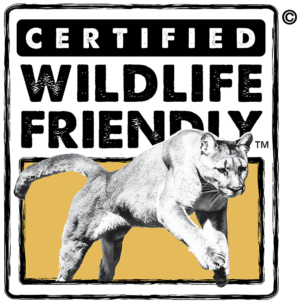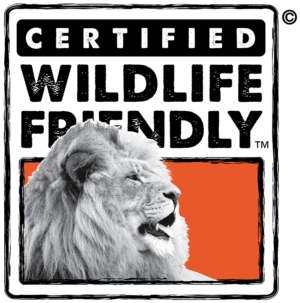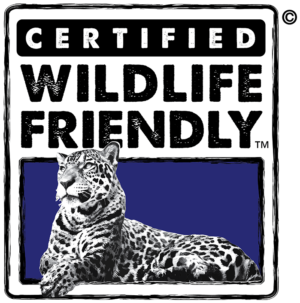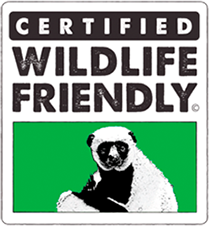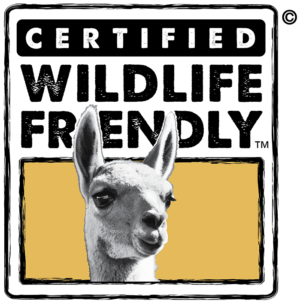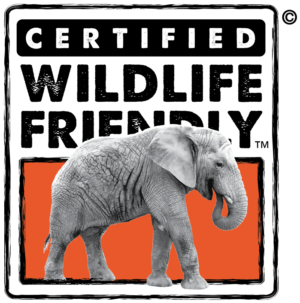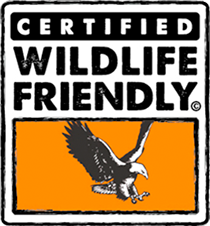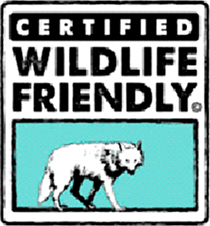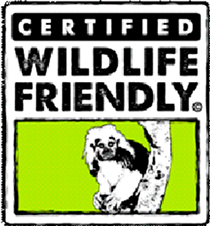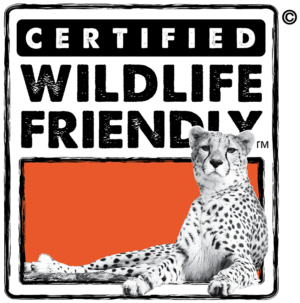FAQs
Q: What do the Certified Wildlife Friendly™ labels mean?
The family of Certified Wildlife Friendly® labels recognize enterprises whose actions contribute to wildlife conservation around the world. By setting expert-driven standards for wildlife friendly practices around the world, the Certified Wildlife Friendly® labels help consumers to support products that match their values. Certified Wildlife Friendly® and associated programs showcase practices that allow people and wildlife to coexist and thrive. These certifications are programs of Wildlife Friendly Enterprise Network. They include:
- Certified Wildlife Friendly® Global Products
- Certified Wildlife Friendly® North American Products
- Certified Predator Friendly® North American Products
- Certified Gorilla Friendly™ Tourism, developed in collaboration with the International Gorilla Conservation Programme (IGCP), a coalition programme of Fauna and Flora International (FFI), World Wildlife Fund (WWF), and Conservation International (CI)
- Certified Gorilla Friendly™ Park Edge Products, also developed in collaboration with IGCP
- Certified Sea Turtle Friendly™ Tourism, developed with the expertise of the Wider Caribbean Sea Turtle Conservation Network (WIDECAST) and others
- Certified Elephant Friendly™ Tea, developed in partnership with the University of Montana
- Certified Jaguar Friendly™ Coffee, developed in partnership with Proyecto de Conservación de Aguas y Tierras and the Sierra to Sea Institute
Q: How do I apply?
- Certified Wildlife Friendly® and Certified Predator Friendly® Global Products – please click here
- Certified Wildlife Friendly® and Certified Predator Friendly® North American Products – please click here
- Certified Gorilla Friendly™ Tourism and Park Edge Products – please e-mail christine@wildlifefriendly.org
- Certified Sea Turtle Tourism™ – please click here
- Certified Elephant Friendly™ Tea – please click here
- Certified Jaguar Friendly™ Coffee –
Q: What “key species” do Certified Wildlife Friendly™ and Certified Predator Friendly™ enterprises protect?
We define key species broadly to include:
- Any species listed on Appendix I or II of the Convention on International Trade in Endangered Species of Wild Fauna and Flora (CITES);
- Any species of concern including keystone species, indicator species, and native predators. These are species that may not be listed by IUCN but which play a critical functional role in the ecosystem;
- Other species that are important in the local context but which may not have legal protection for a variety of reasons;
- Any species defined by the IUCN Red List of Threatened Species as Critically Endangered, Endangered, Vulnerable or Near Threatened, and/or other legislation.
Because many species face context-specific threats, WFEN may define Key Species, and thus confer protection, on other species of concern on a case-by-case basis.
Q: How do Certified Wildlife Friendly™ and Predator Friendly™ differ?
Both labels rigorously protect key species (see above) that are a conservation priority. In keeping with each label’s name, Certified Wildlife Friendly™ producers protect a wide range of wildlife, and Predator Friendly™ producers ensure predators are able to play their keystone role in ecosystems. Both labels recognize enterprises that make a significant contribution to wildlife conservation.
Q: What impact does the Certified Wildlife Friendly™ family of programs have?
The Certified Wildlife Friendly™ family of labels use the power of the marketplace to create on-the-ground change by providing incentives for the protection of endangered wildlife around the world, offering opportunity in often remote and highly disadvantaged communities, and enabling conservation of the earth’s remaining intact landscapes.
Our certified enterprises protect keystone endangered species on five continents, such as the Snow Leopard, Elephant, Red Panda, and Wolf; conserve over thirteen million hectares of diverse wetlands, forests, and grasslands; and benefit over 300,000 people who coexist with wildlife through employment and income generation.
Based on the principles of wildlife conservation, economic well-being, and accountability, each of our certified product lines illustrates the possibilities of triple-bottom-line success for people, planet and profit.
Q: How do I know whether a product is certified by the Wildlife Friendly Enterprise Network?
Look for the logo! If you do not see our distinctive logo on the product or service, it is not certified by WFEN. If you are unsure or would like to report improper use of our marks please contact christine@wildlifefriendly.org.
The unauthorized use of the Registered Trademarks is strictly prohibited. Wildlife Friendly Enterprise Network reserves the right to take any legal action it deems necessary to protect its trademark rights.

